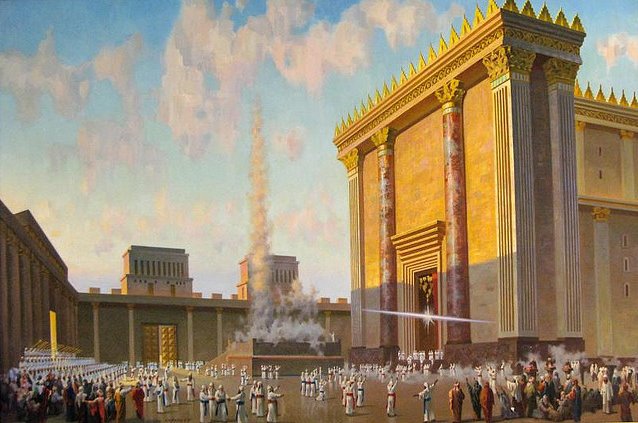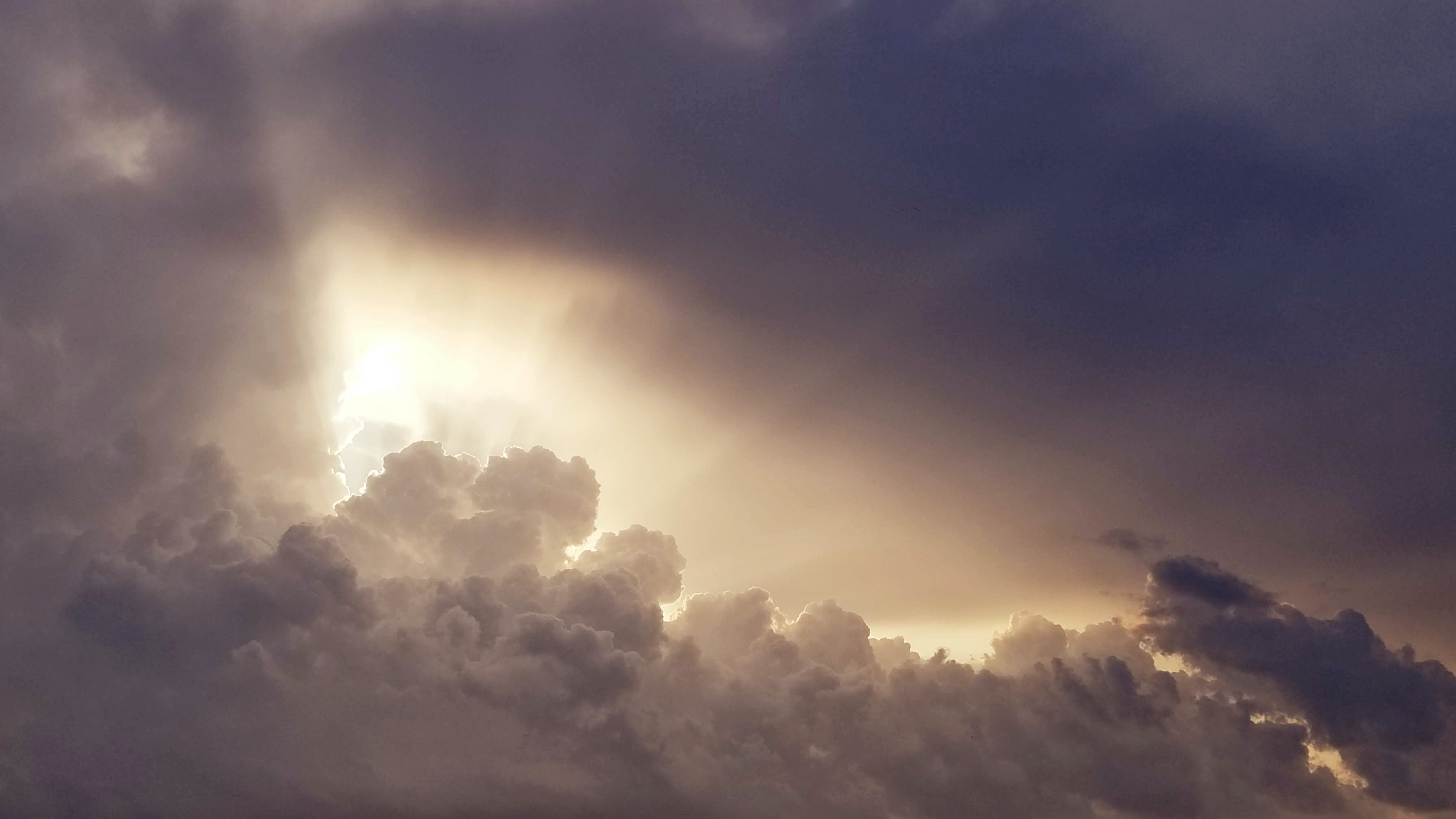October 12, 2021|ו' חשון ה' אלפים תשפ"ב Breishis 5782 - Knowing that Very Good…Is Also Good
Print ArticleIn the early years of Rabbi Norman Lamm’s tenure as President of YU, the school faced a financial crisis that almost closed down the institution. The Board met in an emergency meeting at the Manhattan office of the Chairman of the Board. Rabbi Lamm presided over the meeting.
In the middle of the meeting the
Chairman’s secretary interrupted the meeting and handed a note to Rabbi Lamm.
R. Lamm looked at it and instructed, “Please bring him in.” Suddenly the Rav,
Rav Soloveitchik appeared in the room.
He was seated at the head of the table next to
R. Lamm and he asked if he could address the Board. The Rav, as was his
custom, pulled out from his pocket his prepared remarks. He told the
Board that he knew that it was difficult times for them and he came to share a
special message. He framed his words with the following remark, “The
Torah tells us in the creation story:
וירא אלהים את כל אשר עשה והנה
טוב מאוד. According
to the Torah God looked at all that he created and declared that it was
exceedingly good.” The Rav said, “This doesn’t make sense. Of course,
what God creates by definition is very good. Why would God have to tell
us that He thought His work was good?” The Rav explained, “God, in doing so, is
teaching us something of profound importance. Hashem is teaching us that there
are times in life when we have to look at what we are doing- to take stock- and
we have to realize we are doing good.
We have to declare that out loud-- because it saves us from allowing the difficulties we face to become so overbearing that we lose sight of the big picture and we become depressed.”
He turned to the Board and said, “Remember, what you are doing is “טוב מאוד” it is exceedingly good,” and with those words, the Rav got up and left.
There is a very strange medrash which relates God’s actions BEFORE the creation of the world. Says the medrash:שהיה בורא עולמות ומחריבן, בורא עולמות ומחריבן, עד שברא את אלו, He created worlds and destroyed them, created more worlds and destroyed them, until He created this world. What are chazal trying to teach us by offering this description of God as Creator?
In the very first chapter of the entire Torah, HKBH takes us through the mesmerizing experience of Creation. Of course, we can’t truly understand or appreciate what took place during those seven days, but the Torah does give us a glimpse through its description of the events.
And at the end of the process, just as HKBH is concluding day 6, the Torah tells us as follows:(לא) וַיַּרְא אֱלֹהִים אֶת כָּל אֲשֶׁר עָשָׂה וְהִנֵּה טוֹב מְאֹד וַיְהִי עֶרֶב וַיְהִי בֹקֶר יוֹם הַשִּׁשִּׁי: פ, God saw all He had made, and it was VERY GOOD. It was night and it was day, day 6.
Rav Avraham Pam, the former Rosh Yeshiva in Torah V’Daas, points out that, in fact, this statement from HKBH is rather surprising. After all, we’re talking about God here, and with God, we can typically predict that things should go as planned. God is perfect. He is all-knowing and all-powerful. And for someone as perfect as God, the creation story isn’t as TOV ME’OD as we might have thought.
On Day 3, HKBH commands that fruit-bearing trees should be created: (יא) ]וַיֹּאמֶר אֱלֹקִים תַּדְשֵׁא הָאָרֶץ דֶּשֶׁא עֵשֶׂב מַזְרִיעַ זֶרַע] עֵץ פְּרִי עֹשֶׂה פְּרִי לְמִינוֹ אֲשֶׁר זַרְעוֹ בוֹ עַל הָאָרֶץ וַיְהִי כֵן:, The trees that are created should be trees that produce a fruit which tastes just like the tree.
And, of course, we know that’s not what happened. Rather:(יב) וַתּוֹצֵא הָאָרֶץ דֶּשֶׁא עֵשֶׂב מַזְרִיעַ זֶרַע לְמִינֵהוּ וְעֵץ עֹשֶׂה פְּרִי אֲשֶׁר זַרְעוֹ בוֹ לְמִינֵהוּ וַיַּרְא אֱלֹקים כִּי טוֹב:
The Earth instead created trees which make fruit, but the taste of the tree and fruit would be different.
On Day 4, Hashem creates two luminaries which will provide light in the sky: וַיַּעַשׂ אֱלֹהִים אֶת שְׁנֵי הַמְּאֹרֹת הַגְּדֹלִים, And God created TWO LARGE luminaries.
However, when they are completed, somehow the plan has gone awry: אֶת הַמָּאוֹר הַגָּדֹל לְמֶמְשֶׁלֶת הַיּוֹם וְאֶת הַמָּאוֹר הַקָּטֹן לְמֶמְשֶׁלֶת הַלַּיְלָה וְאֵת הַכּוֹכָבִים:, the large luminary to rule the day and the small one to rule the evening. Somehow, by the end of the story, one the large luminaries became small.
The Gemara in Sanhedrin (38b) describes day 6 of creation, hour by hour:
Hours 1-5 God created man.
6 – Man named the animals
7 – Hashem created Chava
9 – God commanded them not to eat from the Etz HaDaas
10 – They ate from it
11 – They were judged
12 – They are kicked out of the Gan
This is not a great first day as Master of the Universe! And yet, at the end of this 6-day process, one during which many things went wrong, God declares: V’HINEI TOV MEOD! It’s very good!?
Explained Rav Pam, that, of course, God doesn’t make mistakes. Rather, He saw fit to place WITHIN THE STORY OF CREATION ITSELF, the creation which culminates with the creation of the human being, the reality that in life things will NEVER BE PERFECT. And that even amongst all of the IMPERFECTION we can still say “That was pretty good!”
And with this, we can answer our original question as well: Why does the medrash paint a picture of a God who is: בורא עולמות ומחריבן, who created worlds and destroyed them multiple times before creating this world?
Because chazal are picking up on the message HKBH Himself was sending us in the VERY FIRST STORY IN HIS TORAH: You will try hard to do great things. Some won’t work out, and even when they do, they won’t be EXACTLY as you planned them. And that’s ok, because TOV MEOD is pretty good!
In January 2020, I took my older sons Moshe & Aharon, to the Siyum HaShas at Metlife Stadium. I wasn’t making a siyum, but I wanted to be there, and even though we were freezing cold, I said to my boys, we have to wait to hear Rabbi Yissachar Frand, and after Rabbi Frand speaks, we’ll leave. At this event that takes place every seven and a half years, Rabbi Frand always says something that stays with his listeners for years after, and I was hoping the same thing would happen. And he came through again.
He spoke about how one of the reasons so many people decide NOT to begin Daf Yomi is because they’re worried they’ll miss a day. I’ll miss one day, and then another, and then what good is it!
Said Rabbi Frand, you must remember: “NEVER ALLOW THE PERFECT TO BE THE ENEMY OF THE GOOD!”
So, you learned 50 daf and then you stopped. So what!? Isn’t that better than learning 35 or 10 or zero? Because you know you can’t do it PERFECT, that means you shouldn’t try to do something REALLY GOOD!? That’s nonsense!
Yet, we all do that to ourselves. It’s too big, it’s too hard, I’ll never be consistent, I’ll never make it to the end…So I might as well not try! To that, says HKBH: V’HINEI TOV MEOD! We’re not striving for perfect, we’re just trying to do TOV MEOD! And Tov Meod is pretty darn GOOD!
As we take our first few steps into this new year, with our plans for success still right in front of our eyes, let’s make sure to remember the lesson that none other than God Himself taught as He created the world: Never allow the perfect to be the enemy of the good. Because if God is happy with Tov Meod, we should learn to be happy with it too.




